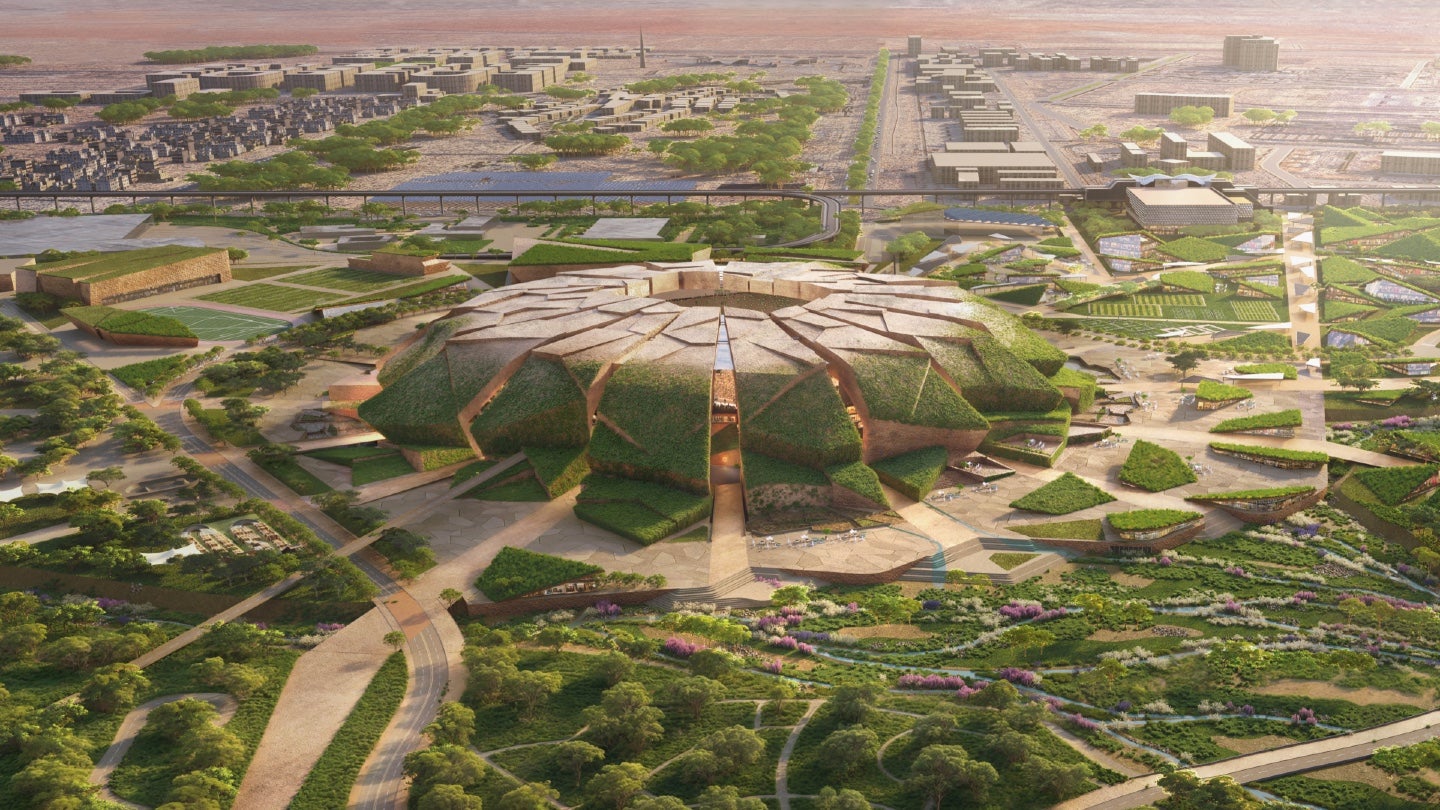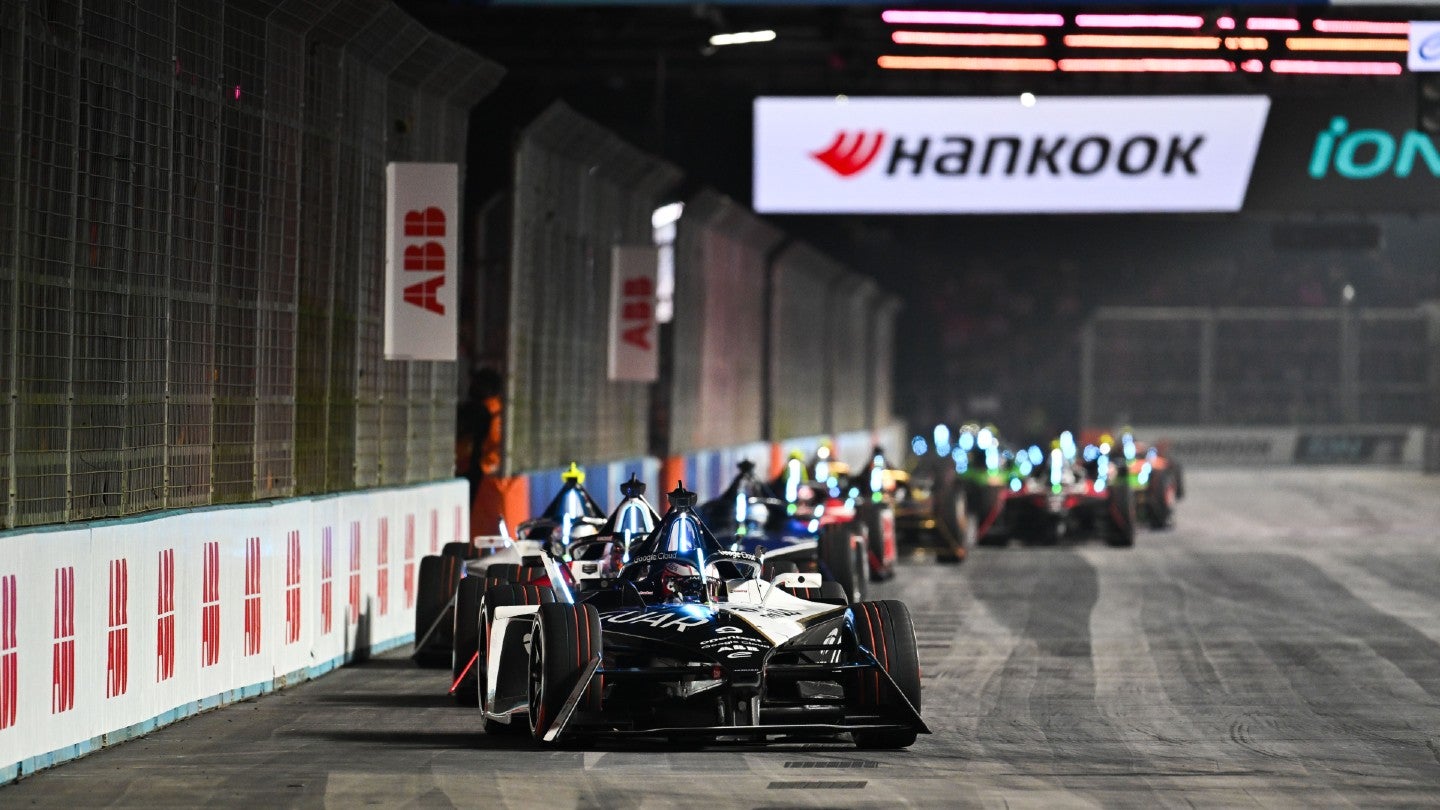The unopposed - and controversial - Saudi Arabian bid to host men’s soccer’s 2034 FIFA World Cup has been given a high score of 4.2 out of 5, through a FIFA evaluation report released late Friday, despite the international governing body noting risks attached to several elements of the current proposals.
The submission by Spain, Portugal, and Morocco, to host all but three opening games from the 2030 edition of the national teams tournament, meanwhile, has also scored 4.2 out of 5.
The other trio of matches in six years’ time will take place across Argentina, Paraguay, and Uruguay (one each) - that submission has not scored as highly, securing 3.6 out of 5 in FIFA’s bid evaluation.
Given all three submissions have passed the threshold to be considered by FIFA's congress and to be voted on, and that they are the only bids for 2030 and 2034, they will now be voted through on December 11 at the FIFA Congress.
The Saudi bid has scored the joint highest-ever mark for a World Cup bid evaluation (419.8 out of 500) despite the FIFA report citing various aspects as presenting a medium risk (bids are ranked either low, medium, or high, across 18 aspects). In contrast, the submission for the 2026 World Cup across Mexico, the US, and Canada, scored 4 out of 5.
The Saudi proposal has been ranked as presenting a medium risk in terms of stadiums and accommodation in the infrastructure department, as well as in terms of transport provision, human rights (which many campaigners believe should bar the Kingdom from hosting an event such as the World Cup) and event timing (World Cups are usually held in June and July, at which time temperatures in Saudi Arabia regularly exceed 40 degrees).
Out of the 15 stadiums proposed to host games across five Saudi cities, eight are yet to be built, and all the proposed venues are not expected to be completed until early 2032. This has not deterred FIFA, however, from marking the stadium element of the bid at 4.1 out of 5.
The report has said that “the prominence of planned infrastructure” is a key element of the bid, and that “given the scale of these projects” - referring to the need to build a significant number of new stadiums - “it will be important to work together to ensure they are successfully realized.”
FIFA added that mitigating factors on this front include the “comprehensive and detailed plans developed by the bidder,” as well as the fact that several of the projects are a key part of the wider ‘Vision 2030’ modernisation efforts taking place in the Kingdom currently.
Several games would likely be held in the futuristic city of Neom - for which construction has hardly even started - for example.
This reasoning is also likely to cover the transport element being presented as medium risk but yet still scoring 4.2 out of 5, with the accommodation scoring 4.1.
Covering the human rights assessment of the bid, with this factor now part of the criteria through which submissions must be assessed, FIFA's report has suggested that Saudi Arabia implementing measures in the FIFA Human Rights Strategy “could involve significant effort and time.”
It also says that there are “areas where further legal reforms are necessary,” and that without effective enforcement, “the risk of indecent working conditions could be elevated.”
Soccer’s governing body added, however, that there have been concrete commitments made on this front by the bidders and by local stakeholders, and that there is potential for the 2034 tournament to “contribute to positive human rights outcomes for people in Saudi Arabia and the region” as part of its legacy.
Upon the report's publication, campaign group Amnesty International has said it represents “an astonishing whitewash of the country's atrocious human rights record. There are no meaningful commitments that will prevent workers from being exploited, residents from being evicted or activists from being arrested.
It added: “Fundamental human rights reforms are urgently required in Saudi Arabia, or the 2034 World Cup will be inevitably tarnished by exploitation, discrimination and repression.”
Referring to the event’s potential timing, meanwhile, FIFA did admit that “the exercise of identifying the optimal window for the competition brings with it some complexities.”
Soccer’s major leagues in Europe have their seasons running between August and May, meaning a World Cup in the European winter - as was the case with the 2022 tournament in Qatar - will inevitably result in serious disruption.
Indeed, the bid does not actually propose a timing window, and simply says the bidding authorities will “collaborate closely … to determine the optimum timing for the competition.”
For the 2030 bids, meanwhile, the submission from the trio of South American countries has been ranked as medium risk in terms of stadiums, accommodation, and transport, and across the board has scored no more than 3.7 out of 5 in terms of all criteria which make up the final mark.
Indeed, transport has only been ranked as 3 out 5, with the report stating that the current capacity levels of general infrastructure in two of the proposed host cities - Montevideo and Asuncion - “appear to be close to the limit of the tournament requirements.”
Argentina, Paraguay, and Uruguay will all host one early game in the tournament, as a centenary celebration of the first-ever FIFA World Cup, in 2030.
Turning to the Iberian and Moroccan bid (scoring 416.8 out of 500), the report found that “the extent of construction projects in the context of a six-year lead time requires close monitoring and support where necessary.”
Overall, the 2030 World Cup - if these bids are successful - would be hosted across around 20 host cities (and 21 stadiums), between June 8 and July 21.
Because of the six different countries involved, the report acknowledged the event would have “a significant negative impact on the climate.”
However, FIFA feels this “will be mitigated by actions including improved transport and sustainable construction practices.”
The 2030 and 2034 bids were both given 'preferred bidder' status by FIFA late last year.
















